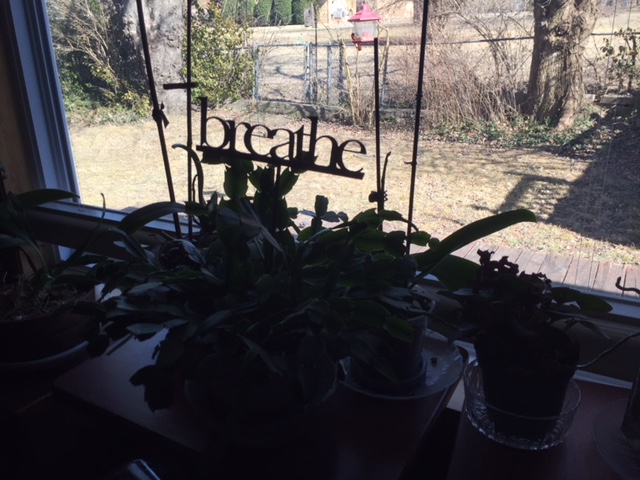
I was just doing some stretching and moving in our family room, looking out of the picture window past our house plants gathered there for the morning sun. As I stretched, I spontaneously said aloud, “Tally (my recently deceased uncle Howard), if you can hear me, I want to tell you that I really appreciate the way you always greeted me with warmth and enthusiasm. I’m also grateful for the friendship you and my dad shared, and how much you both acknowledged that, before and after he died. I’m also thankful for the times you, aunt Betty, and various combinations of your kids took I and my brother Tommy along with y’all on adventures—to the camp on the bayou, to Whiskey Chitto Creek, and to Fatima high school football games when I was still too young to play.”
I don’t know if Tally lives on after death, or, if he does, if he could or would listen to my words. All the same, I felt a stirring in my heart as I spoke them, some moisture in my eyes, even as I do now as I type this—smiles, tears, and some other unnamable ingredients in the emotional gumbo, sweet with a bite.
A friend of mine reported the other day at our early morning mindful men’s meeting that it was a two-funeral day for him. He also shared that such times actually give him opportunity to feel more connected to the departed ones, and also to other living people. I also often find that true. In our discussion, I mentioned that sometimes I look at death as a punctuation mark. As I think more about that, I realize that death often brings more like an assorted collection of punctuation marks for me.
When someone dies, something certainly seems to change. I’m not sure what exactly. Is death a comma (not “coma” as I just read in reviewing)? Does life, does awareness continue on in some way? Or is it more like a period, the end of consciousness, a turning off of the computer for good? I wonder. I’ve had no experiences so far that suggest that I’ll be aware after I die. At the same time, I’m open to whatever adventures might arise. Oh yeah, and I do talk to people who’ve died, expressing gratitude and sometimes asking questions even. It helps me here and now, even without faith or confidence that I’m connecting.
Meanwhile, I figure that the kind of person I’d be after I die would be much like or the same as the character I am now. So, it makes sense to me to “live like you were dying,” as Tim McGraw’s song puts it. A key ingredient for me in that is savoring the flow of experiences moment by moment. I even remember to do that sometimes. I think of it as fruit there for the picking. Telling others how they brighten my life also tends to bring smiles inside and out. I probably remember to do that less than the savoring part. Opportunity! Thankfully, I told uncle Tally more than once how I valued him, including the time he shared similar sentiments with my father the afternoon my pop took his last breath.,!?

A Rich gumbo indeed. May we savor the moments and thrive.
I enjoyed reading this. When my mother passed away I felt the need to write to her often. Letters never mailed but so sure as I read them back aloud to myself, that she heard every word. If we are energy and energy cannot be destroyed…yes death is a punctuation mark. If only in our hearts.
Your concise words move me. I’m grateful that your reply led me to read that post again over 4 years after I wrote. It reminds me of a quote I’ve read, “Sorry I didn’t have time to write less.” I aspire to be more pithy.